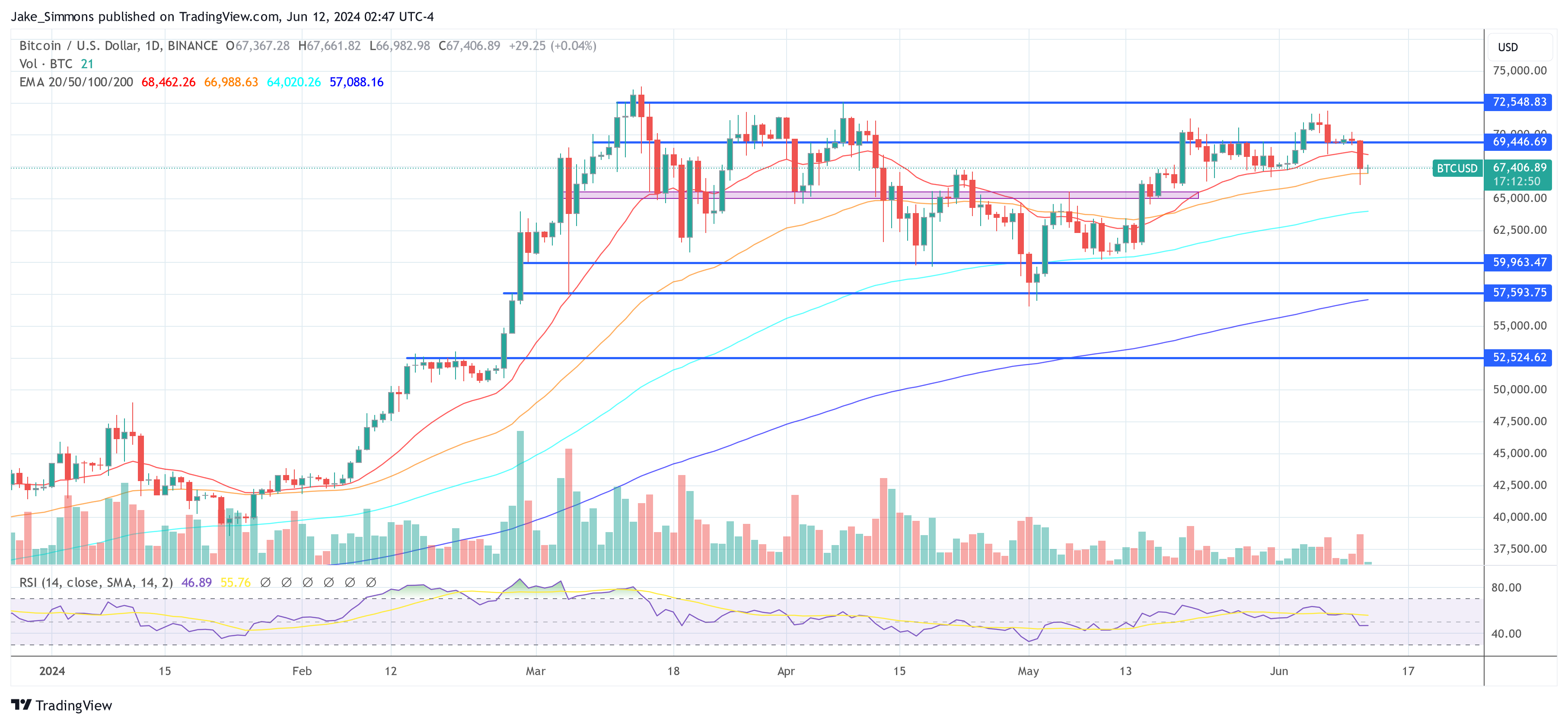In his latest blog post titled “Why I’m Still Betting on Bitcoin,” financial expert and seasoned investor Bill Miller IV, CFA, CMT, Chairman and CIO of Miller Value Partners, reiterated his bullish stance on Bitcoin. According to Miller, who is the Chairman, CIO of Miller Value Partners and son of legendary investor Bill Miller III, Bitcoin remains in the early stages of a secular transition in global capital and governance perspectives.
Bitcoin: It’s Still Early
Miller’s analysis begins with a reflection on a thesis he first introduced in 2015 in his paper, “A Value Investor’s Case for…Bitcoin?!”. He argued that Bitcoin held potential far beyond its valuation at the time, either as a revolutionary payment network or as a viable alternative to traditional fiat capital.
Fast forward to today, Miller observes Bitcoin’s ascendancy but maintains that its journey is far from over. His current valuation places Bitcoin’s market capitalization at about $1.5 trillion, a figure he considers minuscule compared to the nearly quadrillion-dollar global fiat capital system.
“Despite Bitcoin recently hitting new highs against every fiat currency, I believe Bitcoin today is still significantly undervalued and that the world is likely in the early stages of a secular shift around how humans think about capital and its governance,” Miller writes. He points out the inadequacies of current monetary systems, which are prone to human error and manipulation, often leading to the devaluation of currency through inflation and mismanagement.
Supporting his argument, Miller references “Broken Money” by Lyn Alden, which outlines the historical precedence for superior monetary technologies eventually eclipsing their outdated counterparts. Alden’s analysis suggests that when people are presented with better options for preserving or growing their financial resources, they will invariably gravitate towards those options.
“History shows that the best monetary technology inevitably wins, as people trade inferior depreciating capital technologies for superior ones that better align with users’ goal of preserving or growing their option set over time,” writes Miller. Bitcoin, with its decentralized, transparent, and immutable ledger, offers a robust alternative to the governance-laden fiat systems.
Miller also delves deeper into the technical and philosophical underpinnings of Bitcoin, describing it as a “true technological breakthrough.” Unlike traditional monetary systems, Bitcoin operates on a global scale without the need for centralized control, enabling transactions that are resistant to censorship and confiscation. This property alone, according to Miller, radically changes the dynamics of how property rights are transferred and managed across borders and generations.
He also comments on the general public’s struggle to understand and value revolutionary technologies, citing the substantial returns generated by companies like NVIDIA, Google, and Meta as examples of what happens when new paradigms are embraced. “Humans are notoriously bad at contextualizing the relevance and potential of new technologies,” Miller states, emphasizing that Bitcoin’s case is no different.
“This gap is especially wide for groundbreaking concepts of an epistemic nature – that is, inventions that change the way we think about and relate to information and each other. It also explains why NVIDIA, Google and Meta have generated outsized returns relative to other stocks,” Miller states.
In a compelling conclusion to his argument, Miller acknowledges the inherent risks and volatility associated with Bitcoin. As a technology and asset class that is still in its developmental phase, it faces potential shifts in perception and regulatory landscapes. However, he warns that underestimating Bitcoin’s long-term potential could be as harmful as ignoring the early signs of any major technological shift.
“It’s still early,” concludes Miller, suggesting that the journey for Bitcoin is just beginning. He remains confident that as the world continues to grapple with the limitations of fiat currencies and the possibilities presented by digital assets, Bitcoin’s true value will eventually be realized, reflecting its capacity to redefine the fabric of economic systems worldwide. This stance not only reinforces his investment strategy but also serves as a bold forecast for the future of finance.
At press time, BTC traded at $67,406.

















